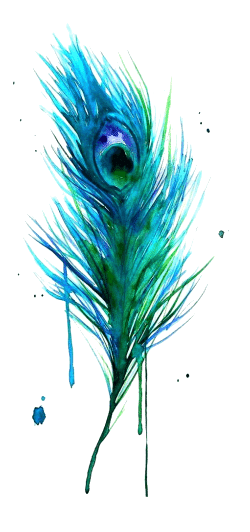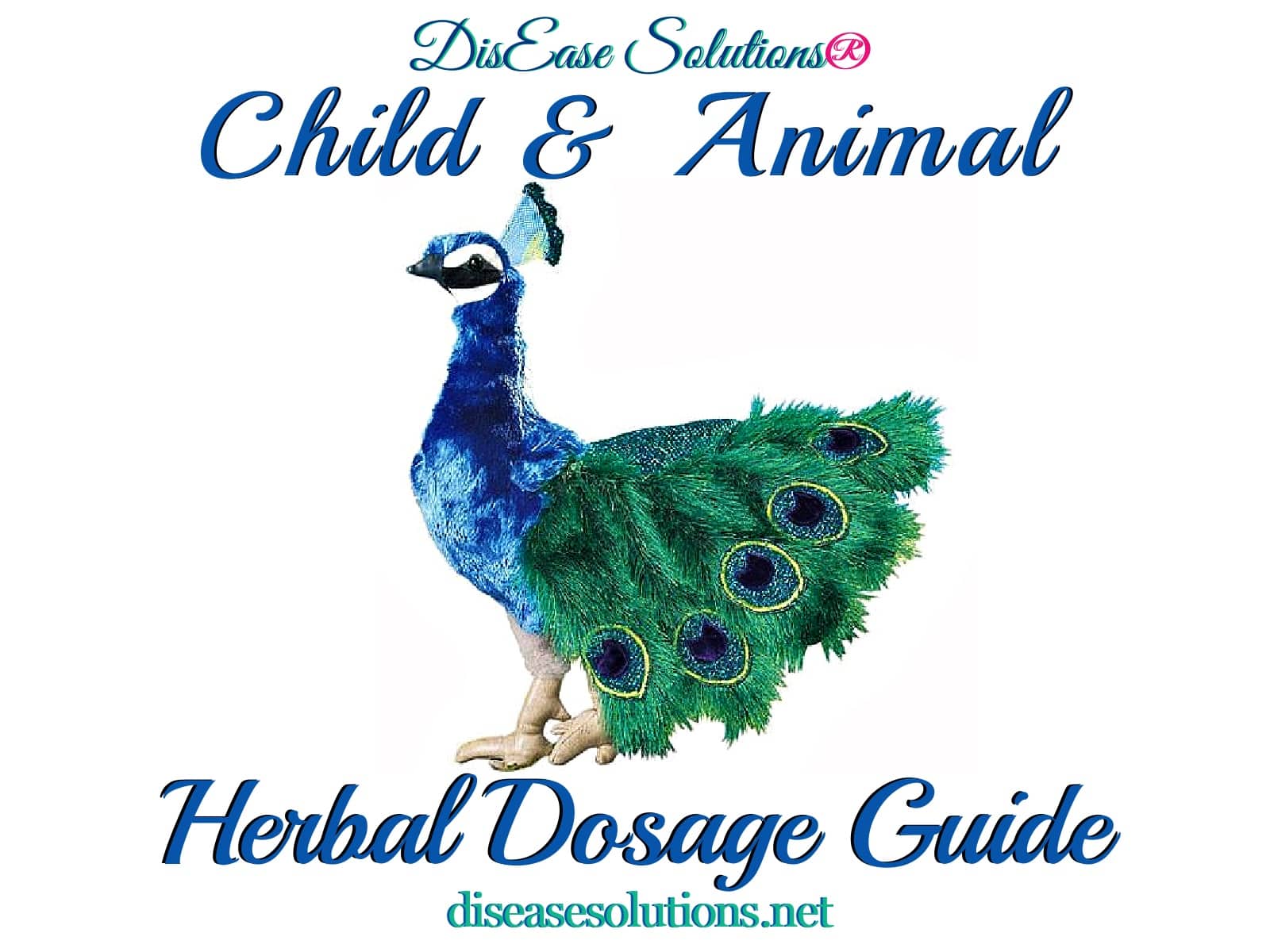This is a guide for “the babes”. Subsequently, mothers with little herbal experience can now worry less, having direction. Consider many factors, primarily the herb itself, its recommendations, cautions, interactions, toxicities, sensitivities, reactions, the child’s overall health, weight, and tolerance. Not all herbs are taken at the same pace or frequency. In conclusion, everyone is different.
We have worked with many breastfeeding mothers. We understand that herbs pass through the breastmilk. Some studies say that the baby may receive 1% of the compounds.
Add any remedies to a liquid, for example formula, water, or juice. Do not administer them directly into the mouth. However, many times an adult is to take an herbal remedy daily, the same applies to children, at the appropriate dose. For example, if an adult is to have 3 cups of tea daily, the child would as well.
There are many herbs that should not be given to a child. Herbs are to be respected. If your child is having trouble taking herbs, come up with creative ways to offer them. For instance, yogurt, gelatin, gummies, pudding, or oatmeal. If you still have difficulty, contact us at dis.ease.martyr@gmail.com to brainstorm.
There are other known methods to determine a child’s dose, although they may be difficult to understand. They are known as “Young’s Rule” and “Cowling’s Rule”. A quick search can be done to find them.
Use herbs wisely and with common sense. Do your research.
Herbal Tea
Herbal Tea Brewing: allow 1 tsp. of herb to sit in 6 oz. of cold water for 5 minutes, then bring it to a 15 minute boil. This will result in a condensed tea. These are general directions for leaf and roots. Normally, flowers are only steeped in hot water. Be sure to allow it to cool down properly.
The standard adult dose for herbal tea, in general, is 1 cup (8 oz.), 1-3 times a day.
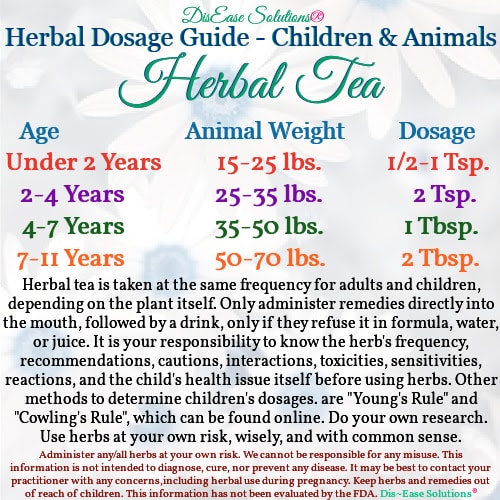
Herbal Tinctures
A tincture is an alcohol-based extraction of herbal compounds. Alcohol is a potent and bioavailable base. A single dose of tincture contains the alcohol content equivalent to a ripe banana.
The standard adult dose for herbal tinctures, in general, is 2-3 droppers (1 tsp.), 1-3 times a day.
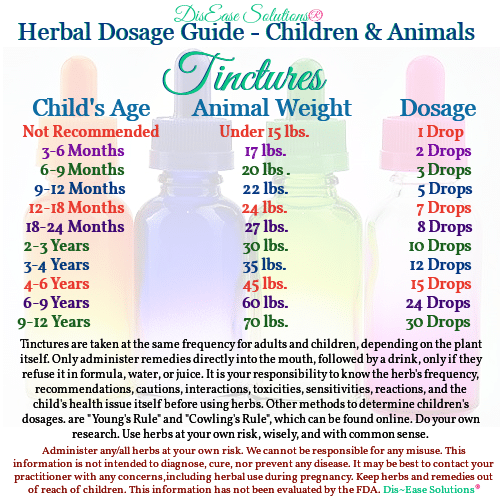
Herbal Glycerites
A glycerite is an extraction of vegetable glycerin. They are ideal for children, due to their sweet, sugary taste. They do not contain sugar and may be a bit less bioavailable than tincture.
The standard adult dose for herbal glycerites, in general, is 3-5 droppers (approx. 2 tsp.), 1-3 times a day.
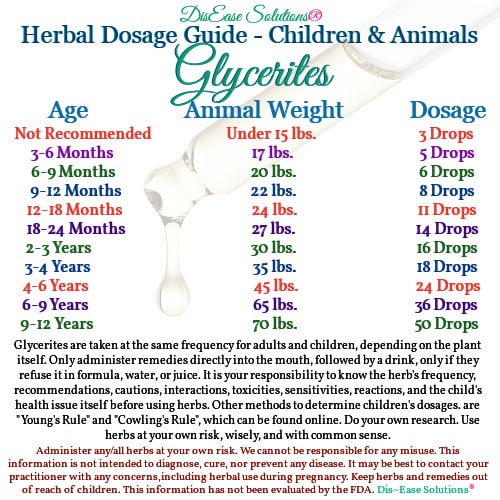
Cautions: Possible reactions may be crying, tummy ache, moodiness, sweating, rashes, as well as others. Cautions: Do not allow the child to suck on, bite, or touch the dropper. The glass may break, which may be a natural reaction. If a bottle is contaminated, mold may grow. If any type of reaction occurs, stop use. Mold may be visible floating on the liquid, inside or outside of the dropper, as well as on the lid. If this occurs, toss it in the trash.
Disclaimer: This information is not intended to diagnose, cure, nor prevent any disease. Consult a physician before use. Keep out of reach of children. Use herbs at your own risk. We are not liable for any misuse or reactions. This product has not been evaluated by the FDA. Dis~Ease Solutions®
References Used: Children’s Dosage Guide | Herb Lore
